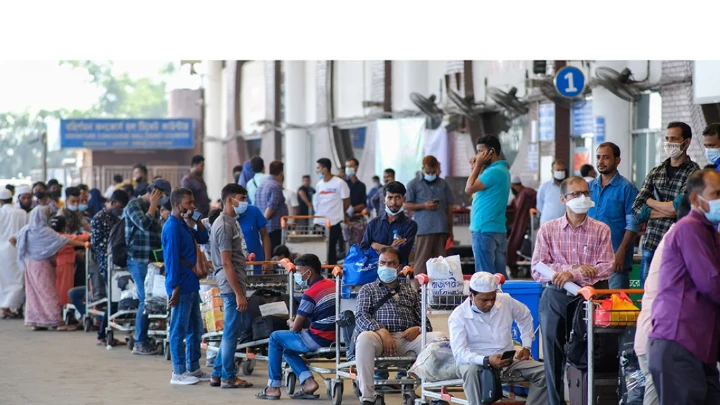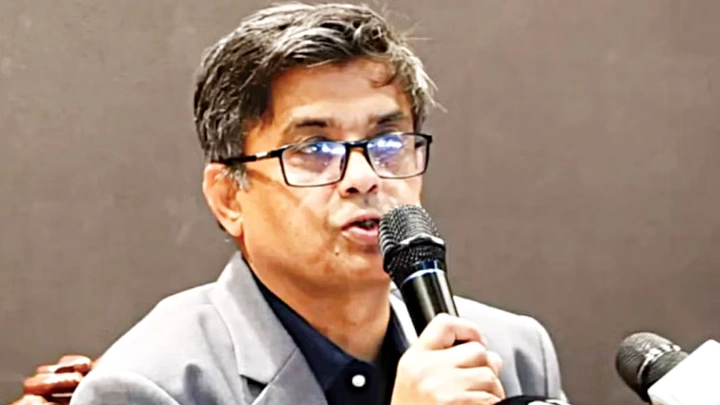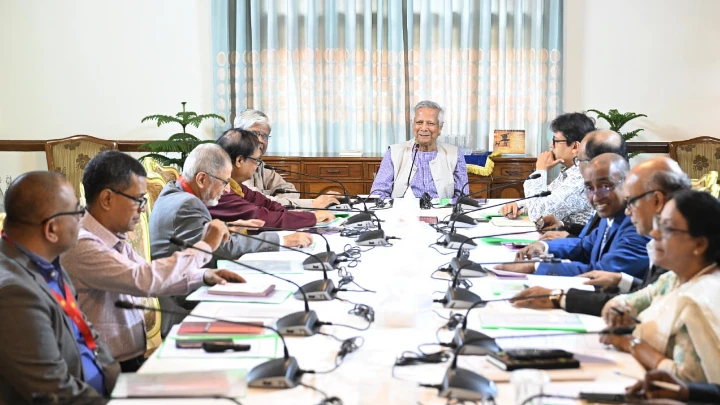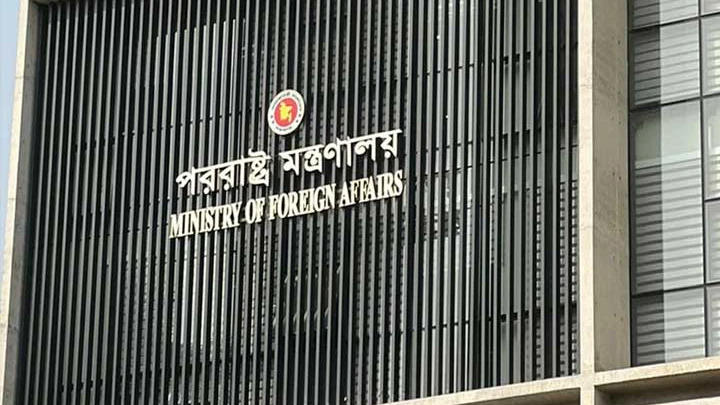STRUGGLES OF MIGRANT WORKERS
Bangladesh bears burden of 10 bodies of expats every day
DhakaTribune || Shining BD
Ahmed Robi, a 28-year-old man from Kurigram, ventured out to Dubai in his search for a better life. But he tragically passed away in his sleep just a month after arriving in Dubai in February of last year.
The doctor's report attributed his death to a heart attack. His remains were repatriated after four and a half months, and he was laid to rest on June 11.
Robi's case is not an isolated incident. In 2023, a staggering 4,552 bodies of expatriate workers returned from abroad, marking the highest number on record.
Over the past five years, from 2019 to 2023, a total of 19,327 expatriate bodies have been repatriated to Bangladesh.
According to Debabrata Ghosh, assistant director of the Expatriate Welfare Desk at Hazrat Shahjalal International Airport, an average of 8 to 10 bodies arrive daily.
Most of these individuals succumb to brain hemorrhages, particularly affecting middle-aged and young expatriates. However, other causes such as heart disease, work-related accidents, road accidents, suicide, or murder also contribute to the rising mortality rate among expatriate workers.
Statistics indicate a concerning trend of increasing mortality rates annually, exacerbated by various factors, including challenges in repatriation.
In 2020, the global response to the coronavirus pandemic disrupted repatriation efforts, leading to numerous expatriates being buried abroad.
Similarly, logistical issues and bureaucratic hurdles often impede the return of bodies to their home country. Consequently, a significant number of expatriate deaths result in local burials in foreign lands.
Authorities say that if one dies due to any disease, it is considered a natural death. Apart from this, most of the expatriate deaths are caused by accidents.
Despite this, comprehensive studies on expatriate mortality causes are lacking. However, available data suggest that cerebral hemorrhage or brain stroke are prevalent among expatriate deaths, with notable instances occurring in middle-aged people or young individuals.
Migration expert and Brac University Assistant Professor Dr Sowmit Chanda Joydip highlights the harsh conditions faced by Bangladeshi workers in the Middle East.
“These unskilled Bangladeshis are involved in various risky jobs in extreme heat and in a hostile environment. On the one hand, there is a hostile environment, on the other there is inhumane work, working for 12 to 18 hours, living in an unhygienic environment, being separated from relatives for a long time. Tragically, this combination of physical and psychological stress frequently precipitates strokes or heart disease among them."
Dr Rashid E Mahbub, former president of the Bangladesh Medical Association (BMA), stressed the importance of pre-departure medical advice and awareness about living conditions abroad to mitigate such tragedies.
He suggested that increased awareness and guidance could significantly reduce premature deaths among expatriate workers.
Ruhul Amin, Secretary of the Expatriate Welfare and Foreign Employment Ministry, said the premature death of expatriate workers is not desirable in any way. “We will do whatever we can in this regard.”
Shining BD























